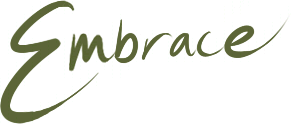 John O’Donohue (1 January 1956 – 4 January 2008) was an Irish poet, author, priest, and Hegelian philosopher. He was a native Irish speaker, and as an author is best known for popularizing Celtic spirituality.
John O’Donohue (1 January 1956 – 4 January 2008) was an Irish poet, author, priest, and Hegelian philosopher. He was a native Irish speaker, and as an author is best known for popularizing Celtic spirituality.
O’Donohue’s first published work, Anam Cara (1997), which means “soul friend” in Gaelic, was an international bestseller and catapulted him into a more public life as an author and much sought-after speaker and teacher, particularly in the United States. O’Donohue left the priesthood in 2000. O’Donohue also devoted his energies to environmental activism, and is credited with helping spearhead the Burren Action Group, which opposed government development plans and ultimately preserved the area of Mullaghmore and the Burren, a karst landscape in County Clare.
Just two days after his 52nd birthday and two months after the publication of his final complete work, Benedictus: A Book of Blessings, O’Donohue died suddenly in his sleep on January 4, 2008 while on holiday near Avignon, France.
There is a kindness that dwells deep down in things; it presides everywhere, often in the places we least expect. The world can be harsh and negative, but if we remain generous and patient, kindness inevitably reveals itself. Something deep in the human soul seems to depend on the presence of kindness; something instinctive in us expects it, and once we sense it we are able to trust and open ourselves. Here in Conamara, the mountains are terse and dark; left to themselves they would make for a brooding atmosphere. However, everywhere around and in between there are lakes. The surface of these lakes takes on the variations of the surrounding light to create subtle diffusions of color. Thus their presence qualifies the whole landscape with a sense of warmth and imagination. If we did not feel that some ultimate kindness holds sway, we would feel like outsiders confronted on every side by a world toward which we could make no real bridges.
The word kindness has a gentle sound that seems to echo the presence of compassionate goodness. When someone is kind to you, you feel understood and seen. There is no judgment or harsh perception directed toward you. Kindness has gracious eyes; it is not small-minded or competitive; it wants nothing back for itself. Kindness strikes a resonance with the depths of your own heart; it also suggests that your vulnerability, though somehow exposed, is not taken advantage of; rather, it has become an occasion for dignity and empathy. Kindness casts a different light, an evening light that has the depth of color and patience to illuminate what is complex and rich in difference. Despite all the darkness, human hope is based on the instinct that at the deepest level of reality some intimate kindness holds sway. This is the heart of blessing. To believe in blessing is to believe that our being here, our very presence in the world, is itself the first gift, the primal blessing. As Rilke says: ‘Hier zu sein ist so viel’ — to be here is immense.
Nowhere does the silence of the infinite lean so intensely as around the form of a newly born infant. Once we arrive, we enter into the inheritance of everything that has preceded us; we become heirs to the world. To be born is to be chosen. To be created and come to birth is to be blessed. Some primal kindness chose us and brought us through the forest of dreaming until we could emerge into the clearance of individuality, with a path of life opening before us through the world.
